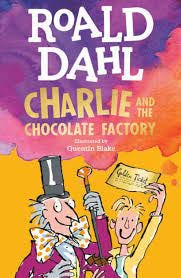Charlie and the Censorship Factory
Did you happen to see the recent article in the New York Times about how Roald Dahl’s books are being altered? And not by him, since he died in 1990.
The headline of the article was: “Roald Dahl’s Books Are Rewritten to Cut Potentially Offensive Language.”
The author’s estate says that passages “have been rewritten in an effort to make them less offensive and more inclusive.” Now, what sort of passages are we talking about? A British newspaper reports that changes “include characters who are no longer described as ‘fat’ and references to ‘mothers’ and ‘fathers’ that have been updated to ‘parents’ or ‘family.’” Thank God they excised “mothers” and “fathers.” I feel more secure already.
Who makes these decisions? And whose books are next?
Is the goal of being more inclusive and trying to discourage stereotypical language a laudable one? Certainly. But. Here, I want to turn to the author of The Golden Notebook, Doris Lessing, for help. In a prescient article written more than thirty years ago for the New York Times, titled, “Language and the Lunatic Fringe,” she wrote, “Does Political Correctness have a good side? Yes, it does, for it makes us re-examine attitudes, and that is always useful. The trouble is that, with all popular movements, the lunatic fringe so quickly ceases to be a fringe, the tail begins to wag the dog. For every woman or man who is quietly and sensibly using the idea to examine our assumptions, there are 20 rabble-rousers whose real motive is desire for power over others, no less rabble-rousers because they see themselves as anti-racists or feminists or whatever.”
She saw the movement to control language as emanating, perhaps not consciously, from communism and its “debasement” of language. Please read the entire article. I can’t do it justice. She also writes, “There is obviously something very attractive about telling other people what to do.”
In that recent article, the Times quotes Suzanne Nossel, chief executive of PEN, the esteemed literary organization: “Those who might cheer specific edits to Dahl’s work should consider how the power to rewrite books might be used in the hands of those who do not share their values and sensibilities.”
In other words, ask not for whom the censoring bell tolls, it may well toll for thee.




Thanks, Richard. Very timely. How is this kind of censorship any different from right-wingers changing textbooks to play down slavery?
Yes, next stop Jane Austen and Emily Bronte.
Oh, but wait, that already happened! At least we still have access to the originals. At least, for now!